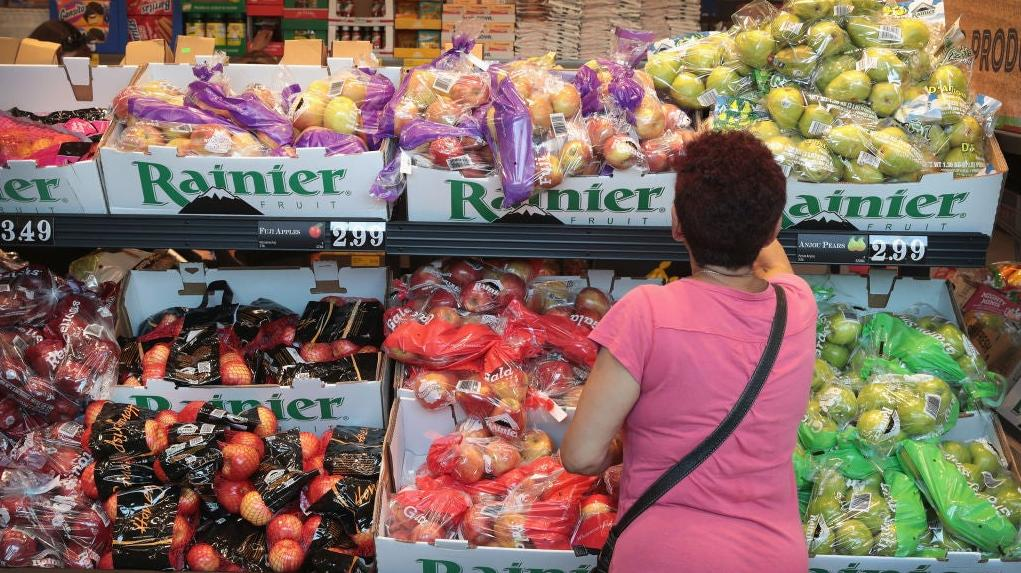ALDI Is Making Changes To Go Green
The beloved discount retailer wants to lure eco-conscious shoppers.
One of the dirty little not-so-secret secrets about our system of grocery shopping in the U.S. is that the average American supermarket produces a lot of food and packaging waste, sucks up energy (often from non-renewable sources), and emits a hefty amount of greenhouse gases. ALDI, however, is not about that life. Not content to be the cheapest and fastest-growing store on the block, the quirky German-based juggernaut is apparently going all in on sustainable environmental practices in an effort to win the hearts and minds of today's eco-conscious shoppers.
How ALDI is getting greener
ALDI has always proven that thriftiness and sustainability go hand in hand, most notably as one of the first grocery chains to discourage single-use plastic by charging a fee for bags—and the store hasn't offered single-use plastic shopping bags in several decades. The company has also made considerable strides toward sustainability in the last four years, including eliminating Styrofoam from produce packaging and adding solar panels to at least 60 stores and a few warehouses in Alabama and Kansas. That's in addition to the 111 stores and 12 distribution centers that are already sporting some solar.
This year, the discount retailer is getting even greener as it makes good on some of its sustainability goals it hopes to achieve between now and 2030, most notably eliminating all plastic shopping bags of any kind in all 2,300 U.S. ALDI stores. It's a commitment made in 2022 that is projected to keep 4,400 tons—almost 9 million pounds—of plastic out of landfills each year.
ALDI is not only working on plastic waste this year, however. It has also announced a plan to transition all of its coolers to natural refrigerants before the end of 2035, which reps say will save roughly 60% of the company's carbon emissions each year. At the moment, more than 600 ALDI stores are already using environmentally friendly refrigerants, many of which are certified as GreenChill stores by the Environmental Protection Agency (EPA).
While the elimination of plastic bags is something shoppers can see and feel, ALDI's transition to low-carbon refrigerants is a more invisible yet environmentally huge move for a national grocery chain. Each of those commercial-sized refrigerators that keep your bags of salad mix chilled and crisp can leak up to 25% of their cooling gas each year, which adds up to 875 pounds of greenhouse gases to the atmosphere, or the equivalent of the carbon emissions from 300 cars.
This transition to new refrigerants isn't entirely altruistic, however, as state and federal guidelines will require all stores to change their refrigerants soon, if they haven't changed the rules already. Still, it's nice to know that ALDI is being proactive about its emissions, which can offer a little peace of mind next time you're strolling down the aisle of shame.
Younger shoppers want sustainable grocery stores
All this greening up has benefits for ALDI, too. Not only do these measures save on waste and costs, and land the grocery chain in the good graces of local environmental laws, but recent studies have shown that shoppers want more environmentally friendly grocery options, and they're willing to spend a little extra to know that their food is more sustainable.
In a 2022 study from the software company Retail Insight, 77% of shoppers participating said that they tried to shop more sustainably in the past year. Interestingly, that number increases to 85% among 25- to 34-year-olds. The younger generations seem to be influencing their elders, too.
"Some of those behaviors are starting to get picked up by the older demographic groups who still have the bulk of the purchasing power in many cases," Jeremy Levine, director of Alvarez & Marsal's consumer and retail group, said to Grocery Dive about a similar report his company released in 2022.
As a result, sustainability efforts are high on the priority list for grocery stores in 2024 and beyond. Stores like Kroger, Wegmans, Whole Foods, and other national and regional chains are also beefing up their environmental commitments. So while you bid auf wiedersehen to ALDI's plastic bags as you shop for the hottest drip, keep your eye out for their other efforts to curb food waste, cut electricity usage, and source more local products. If you don't notice changes on the shelves, look for any sort of sustainability progress report if you're curious as to what any of your favorite supermarkets are doing to save the planet. Just beware of rampant "greenwashing," and always shop somewhere you trust.
